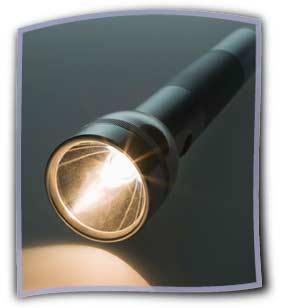 UR FAMILY JUST ENJOYED OUR FIRST WHITE CHRISTMAS IN AT LEAST two decades. Prior to our arrival in Maryland, Christmas was usually celebrated with a trip to the beach, lots of watermelon, and making cookies—a hot and sticky job that nobody really cherished. Just in case you wonder: we lived in the Southern Hemisphere where December is the middle of summer.
UR FAMILY JUST ENJOYED OUR FIRST WHITE CHRISTMAS IN AT LEAST two decades. Prior to our arrival in Maryland, Christmas was usually celebrated with a trip to the beach, lots of watermelon, and making cookies—a hot and sticky job that nobody really cherished. Just in case you wonder: we lived in the Southern Hemisphere where December is the middle of summer.
Close to our home in Silver Spring there is a wonderful botanical garden, Brookside Gardens (www.brooksidegardens.org), which has become one of the favorite hangouts of our family. In celebration of 40 years of service to the public, Brookside planned a special Garden of Lights during this winter period. Investing hundreds of hours, the park personnel (and many volunteers) designed hundreds of animals and flowers made of small colored lights. We visited Brookside one very cold evening in December, and everybody was awed by the spectacular designs and the beauty of lights in a snow-covered garden.
 As we were making our way through the lighted sections of the gardens, I was walking with my second daughter, Sarah, who is 9 years old and a great observer and deep thinker. Suddenly she said something that struck me and kept moving around in my mind—enough to write an editorial about it: “Papa, things look much bigger in the dark,” was Sarah’s gem of insight, and then she continued, “I think light and darkness change our perspectives.”
As we were making our way through the lighted sections of the gardens, I was walking with my second daughter, Sarah, who is 9 years old and a great observer and deep thinker. Suddenly she said something that struck me and kept moving around in my mind—enough to write an editorial about it: “Papa, things look much bigger in the dark,” was Sarah’s gem of insight, and then she continued, “I think light and darkness change our perspectives.”
“Light and darkness change our perspectives,” I mumbled to myself, wondering where this had come from. In the previous weeks we had often walked during the day in Brookside Gardens and had seen the metal frames of the lion and the giraffe and the many other plants and animals, and, honestly, they had not looked too impressive. The lion was way too small, when compared to the real thing that I had seen numerous times in its natural habitat in South Africa and Namibia. The giraffe did not reach the majestic height of her breathing counterparts in Africa. However, with darkness all around us, a thick snow covering, and well-placed lights they suddenly appeared bigger and more real.
As I thought about Sarah’s observation, context became the key concept (as well as the title of this column). Context determines visual and mental perspectives. Context changes perceptions. Taking something out of context may distort and confuse. My students in Africa, South America, and Asia understood that concept as I kept reminding them week after week about the importance of interpreting Scripture and Ellen White’s writings in context. My guess is that you would be hard-pressed not to find this word in any volume dealing with Scripture and biblical interpretation. It is not just a word used only in academia, however, but one that connects existentially with each one of us.
What is your life context right now? How is light or darkness changing your perspective of yourself and your lot in life? Do things look bright and breezy or do you feel that your life is just dragging on, always facing the same challenges, always stumbling over the same obstacles, always having to pick up the pieces? Remember that light and darkness change not only our perspectives but also the context and the very fabric of our lives. The One who said “I AM the light of the world” (John 8:12) is ready and willing to transform your darkness or semi-lighted back alley into light—right now. Don’t let darkness and its huge shadows frighten you into giving up your journey with Jesus. Let the Light of this world put you into the right—yes, you guessed it—context.
________
Gerald A. Klingbeil is an associate editor of the Adventist Review. This article was published February 25, 2010.

 As we were making our way through the lighted sections of the gardens, I was walking with my second daughter, Sarah, who is 9 years old and a great observer and deep thinker. Suddenly she said something that struck me and kept moving around in my mind—enough to write an editorial about it: “Papa, things look much bigger in the dark,” was Sarah’s gem of insight, and then she continued, “I think light and darkness change our perspectives.”
As we were making our way through the lighted sections of the gardens, I was walking with my second daughter, Sarah, who is 9 years old and a great observer and deep thinker. Suddenly she said something that struck me and kept moving around in my mind—enough to write an editorial about it: “Papa, things look much bigger in the dark,” was Sarah’s gem of insight, and then she continued, “I think light and darkness change our perspectives.”